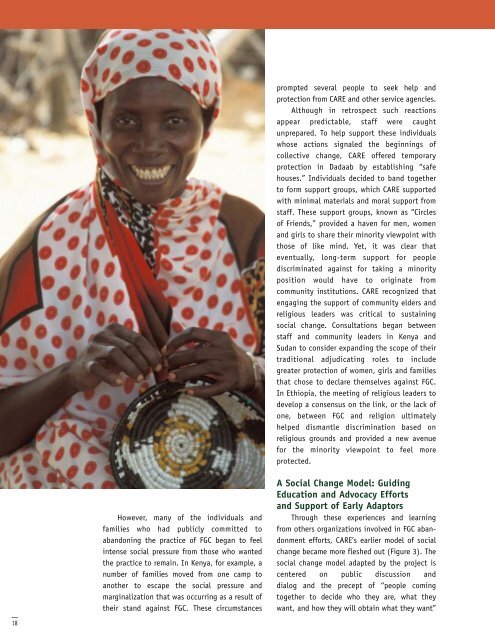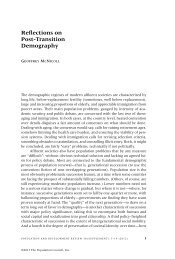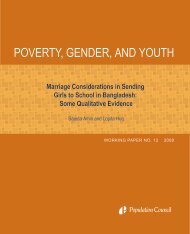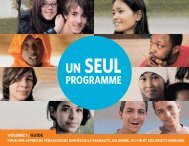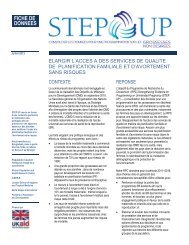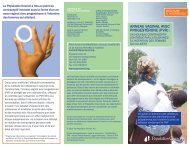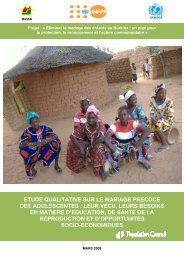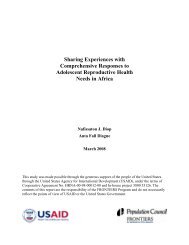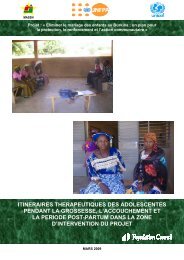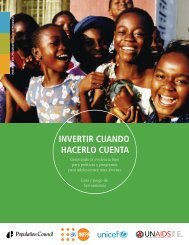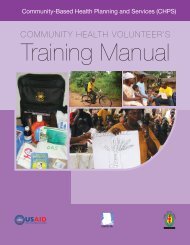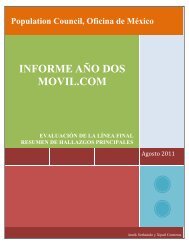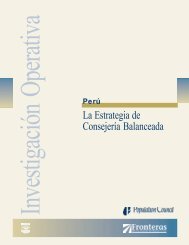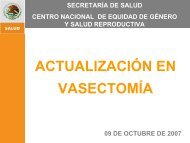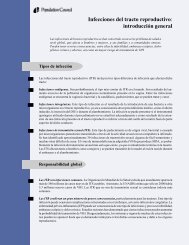CARE's Experiences Working with Communities toward ...
CARE's Experiences Working with Communities toward ...
CARE's Experiences Working with Communities toward ...
Create successful ePaper yourself
Turn your PDF publications into a flip-book with our unique Google optimized e-Paper software.
|<br />
18<br />
However, many of the individuals and<br />
families who had publicly committed to<br />
abandoning the practice of FGC began to feel<br />
intense social pressure from those who wanted<br />
the practice to remain. In Kenya, for example, a<br />
number of families moved from one camp to<br />
another to escape the social pressure and<br />
marginalization that was occurring as a result of<br />
their stand against FGC. These circumstances<br />
prompted several people to seek help and<br />
protection from CARE and other service agencies.<br />
Although in retrospect such reactions<br />
appear predictable, staff were caught<br />
unprepared. To help support these individuals<br />
whose actions signaled the beginnings of<br />
collective change, CARE offered temporary<br />
protection in Dadaab by establishing “safe<br />
houses.” Individuals decided to band together<br />
to form support groups, which CARE supported<br />
<strong>with</strong> minimal materials and moral support from<br />
staff. These support groups, known as “Circles<br />
of Friends,” provided a haven for men, women<br />
and girls to share their minority viewpoint <strong>with</strong><br />
those of like mind. Yet, it was clear that<br />
eventually, long-term support for people<br />
discriminated against for taking a minority<br />
position would have to originate from<br />
community institutions. CARE recognized that<br />
engaging the support of community elders and<br />
religious leaders was critical to sustaining<br />
social change. Consultations began between<br />
staff and community leaders in Kenya and<br />
Sudan to consider expanding the scope of their<br />
traditional adjudicating roles to include<br />
greater protection of women, girls and families<br />
that chose to declare themselves against FGC.<br />
In Ethiopia, the meeting of religious leaders to<br />
develop a consensus on the link, or the lack of<br />
one, between FGC and religion ultimately<br />
helped dismantle discrimination based on<br />
religious grounds and provided a new avenue<br />
for the minority viewpoint to feel more<br />
protected.<br />
A Social Change Model: Guiding<br />
Education and Advocacy Efforts<br />
and Support of Early Adaptors<br />
Through these experiences and learning<br />
from others organizations involved in FGC abandonment<br />
efforts, CARE’s earlier model of social<br />
change became more fleshed out (Figure 3). The<br />
social change model adapted by the project is<br />
centered on public discussion and<br />
dialog and the precept of “people coming<br />
together to decide who they are, what they<br />
want, and how they will obtain what they want”


